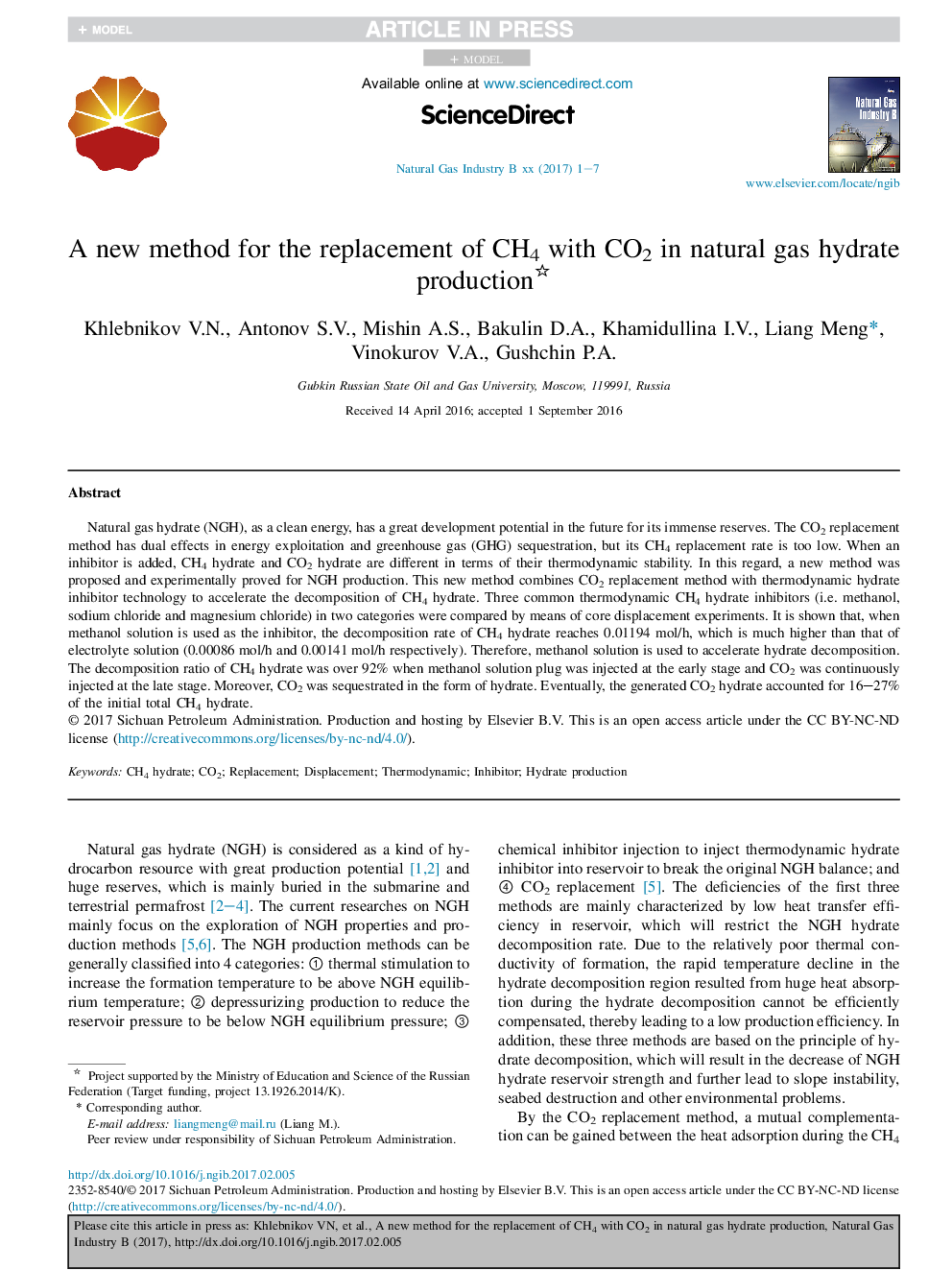| Article ID | Journal | Published Year | Pages | File Type |
|---|---|---|---|---|
| 8109951 | Natural Gas Industry B | 2016 | 7 Pages |
Abstract
Natural gas hydrate (NGH), as a clean energy, has a great development potential in the future for its immense reserves. The CO2 replacement method has dual effects in energy exploitation and greenhouse gas (GHG) sequestration, but its CH4 replacement rate is too low. When an inhibitor is added, CH4 hydrate and CO2 hydrate are different in terms of their thermodynamic stability. In this regard, a new method was proposed and experimentally proved for NGH production. This new method combines CO2 replacement method with thermodynamic hydrate inhibitor technology to accelerate the decomposition of CH4 hydrate. Three common thermodynamic CH4 hydrate inhibitors (i.e. methanol, sodium chloride and magnesium chloride) in two categories were compared by means of core displacement experiments. It is shown that, when methanol solution is used as the inhibitor, the decomposition rate of CH4 hydrate reaches 0.01194Â mol/h, which is much higher than that of electrolyte solution (0.00086Â mol/h and 0.00141Â mol/h respectively). Therefore, methanol solution is used to accelerate hydrate decomposition. The decomposition ratio of CH4 hydrate was over 92% when methanol solution plug was injected at the early stage and CO2 was continuously injected at the late stage. Moreover, CO2 was sequestrated in the form of hydrate. Eventually, the generated CO2 hydrate accounted for 16-27% of the initial total CH4 hydrate.
Related Topics
Physical Sciences and Engineering
Energy
Energy Engineering and Power Technology
Authors
V.N. Khlebnikov, S.V. Antonov, A.S. Mishin, D.A. Bakulin, I.V. Khamidullina, Meng Liang, V.A. Vinokurov, P.A. Gushchin,
